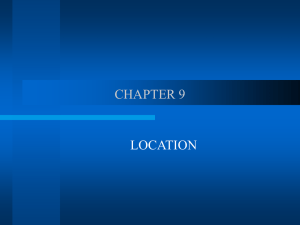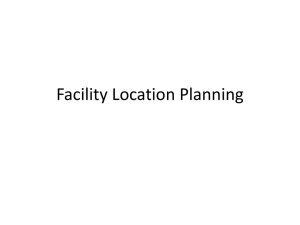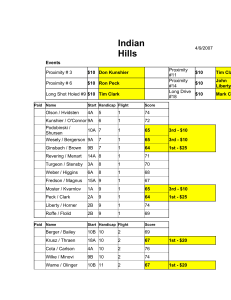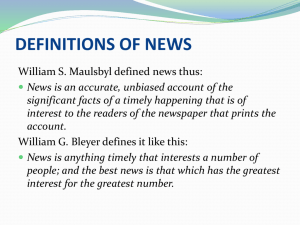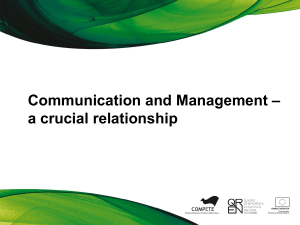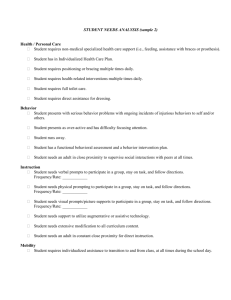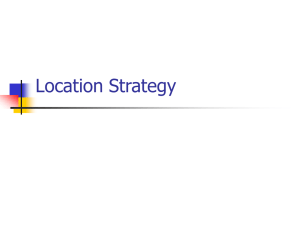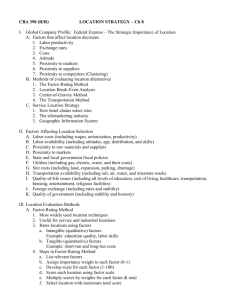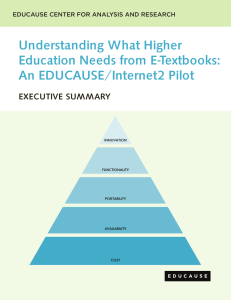Proximity of Equations, Text, and Figures in Civil Engineering E
advertisement
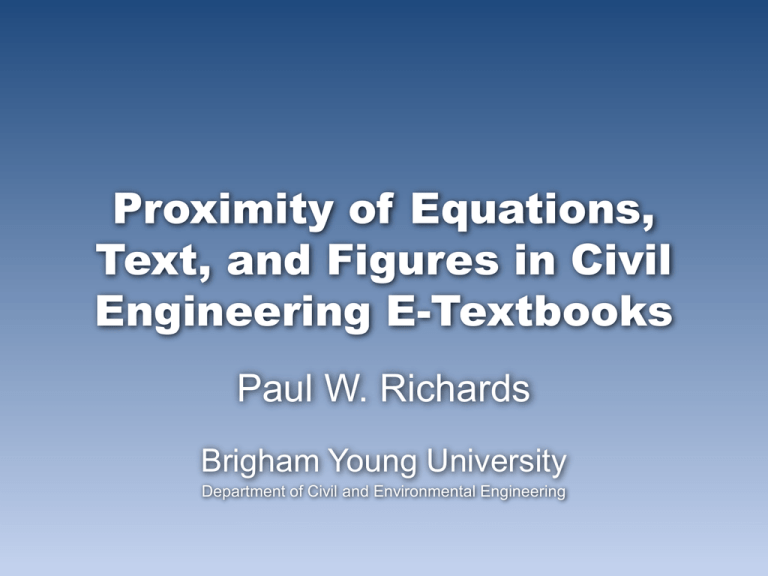
Proximity of Equations, Text, and Figures in Civil Engineering E-Textbooks Paul W. Richards Brigham Young University Department of Civil and Environmental Engineering Electronic Textbooks Are Being Pushed Are Electronic Textbooks As Effective as Printed? Daniel, D. B., and Woody, W. D. (2013). "E-textbooks at What Cost? Performance and Use of Electronic vs. Print Texts." Computers & Education, 62(0), 18-23. • No significant difference in learning • Electronic formats take longer to read How Are Engineering Textbooks Different? Myers, D.G. Psychology. Seventh Ed. Hibbeler, R.C. Engineering Mechanics: Statics Proximity How Does Proximity Impact Learning? Mayer, R.E., et al., A Generative Theory of Textbook Design: Using Annotated Illustrations to Foster Meaningful Learning of Science Text. Educational Technology Research and Development, 1995. 43(1): p. 31-43. What Happens to Proximity in Engineering E-Textbooks? Even Page Odd Page Odd Page Now not proximate Now not proximate Printed Spread Textbooks Used for Study Results for Printed Books Proximity of Referenced Objects (%) Author Same Page Facing Page Same Spread Segui 50 16 66 McCormac 50 17 67 Geschwindner 33 16 49 Salmon and Johnson 46 27 72 All 45 19 63 • These results can be used to infer proximity in PDF versions viewed one page, rather than one spread, at a time. • Flowable-text versions have much lower proximity with some approaching 0%. Returning to the Ideal “… page after page of Leonardo’s manuscripts have a gentle but thorough integration of text and figure, a quality rarely seen in modern work.” Edward Tufte Conclusions and Recommendations • Proximity matters in scientific texts. • Electronic textbooks have poor proximity (50% or worse). • Current-generation e-textbooks in science and engineering should not be pushed.
